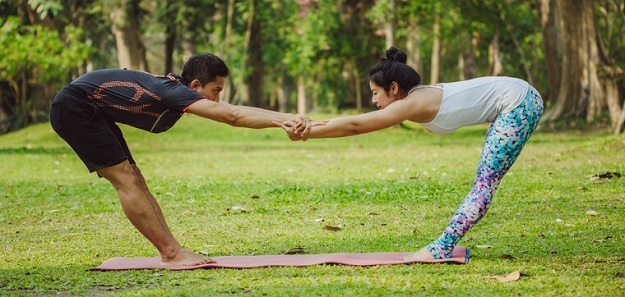Finding motivation to exercise might be challenging in today’s fast paced society. Outdoor exercise provides a refuge from the daily grind. The advantages of outdoor exercise go beyond fitness to mental health and social interaction. They reveal a world of renewal, inspiration and fellowship waiting to be discovered.
Physical Health Improvement
Outdoor exercise has several health advantages. Jogging, hiking and cycling allow your body to move and exert itself in Nature. This exercise burns calories, develops muscles, improves cardiovascular health and boosts fitness.
Sunlight helps your body generate vitamin D making outdoor exercise beneficial. This vitamin is necessary for bone immunological and mental health. Outdoor activity boosts vitamin D levels lowering the risk of deficiency and associated health consequences.
Different terrain and weather might test your body during outdoor training. Trail running and hill climbing need more excellent balance than treadmill exercise. These trials increase coordination agility and proprioception boosting overall fitness.
Many find outdoor exercising more fun than indoor training. The changing environment, fresh air and independence make the experience more enjoyable. Individuals are more inclined to exercise regularly resulting in long term health advantages and durable lifestyle improvements.
Mental Well Being Enhancement
Outdoor exercise promotes mental health as much as the body. Outdoor time reduces stress, anxiety and sadness and improves mood and cognition. Outdoor exercise may soothe and rejuvenate the mind since you’re in Nature.
The sights, sounds and fragrances of Nature are exhilarating and healing. Running through a forest doing yoga in a park or biking along a gorgeous track may help you relax and focus.
Outdoor exercise promotes awareness and calm. Outdoor exercise makes you more aware of the present. You may concentrate on your breath, your feet or the scenery. This mindfulness technique helps reduce stress and overload by promoting inner calm and satisfaction.
Natural environments boost creativity and problem solving. Outdoor time lets the mind roam and develop new connections improving cognitive flexibility and creativity. Outdoor exercise may inspire you while thinking or seeking inspiration.
Social Connection And Community Building
Outdoor exercise has personal and communal advantages. Outdoor fitness courses and recreational sports teams allow you to meet others with similar interests and aspirations.
Sharing physical exercise with others makes it more fun and provides accountability and support. You’re more likely to push yourself, remain inspired and stick to your program with friends or teammates. Group exercise boosts motivation and belonging via friendship and encouragement.
In parks, trails and beaches people of all backgrounds exercise together. These familiar places allow people to socialize, form connections and create community links.
Participating in outdoor fitness activities, charity walks or community clean ups promotes health and community service. Supporting a shared cause can bring joy and meaning beyond fitness objectives.
Immune System Boost
Outdoor exercise boosts the immune system, preventing disease and improving health. It exposes you to sunshine, fresh air and natural scenery crucial for immune function and disease resistance.
Natural sunshine boosts vitamin D production necessary for a robust immune system. Vitamin D regulates immune cells and decreases the risk of infections including colds and flu. Outdoor exercises in the sun may boost your immune system and reduce seasonal infection risk.
Exercise outside exposes you to phytoncides, airborne compounds emitted by trees and plants. Phytoncides boost natural killer cell activity which fights infections and cancer. Forest bathing and trekking may increase your immune system by inhaling phytoncides.
Stress Reduction And Cortisol Regulation
Outdoor exercise reduces stress and regulates the body’s stress response which is a significant advantage. Today civilization is plagued by chronic stress which causes many physical and mental health difficulties. However, spending time in nature and outdoor activities helps reduce stress and build resilience.
Outdoor exercise lets you escape the stresses of everyday life and enjoy Nature. Nature sights, sounds and sensations relax the nervous system, lowering cortisol and relieving stress. Practicing yoga in a park, taking a nature walk or just sitting outdoors and enjoying the view might help you relax.
Outdoor exercise promotes attention and presence, helping you relax and forget your troubles. It connects you to your body and environment anchoring you. Mindful awareness calms, reduces rumination and promotes mental clarity and balance.
Enhanced Sleep Quality

Outdoor activity may improve sleep quality helping you rest more each night. Sleep is vital to physical healing, cognitive function and emotional stability. Stress, worry and sedentary lifestyles cause many individuals to have sleep problems and insomnia.
Outdoor activity might help you sleep better by matching your body rhythm with natural sunshine. Daytime exposure to sunshine modulates melatonin synthesis which controls sleep wake cycles. Being outside and exposed to natural light helps synchronize your circadian cycles and increase sleep quality and length.
Cognitive Enhancement
Outdoor exercise improves cognition memory and clarity. Outdoor exercise increases cerebral blood flow supplying oxygen and nutrients to enhance neuronal health and cognition. Increased blood flow boosts neuroplasticity, the brain capacity to adapt and restructure neural networks to new inputs.
Outdoor exercise involves several brain areas via sensory input. Nature’s sights , sounds and fragrances stimulate cognitive processing and sensory awareness. Outdoor exercise improves cognitive function and mental clarity since studies show that Nature improves attention, focus and creativity.
Outdoor activities stimulate the brain through navigation, problem solving and exploration. These activities require flexibility and strategic thought whether hiking recognizing flora and animals or arranging a bicycle trip. Outdoor activity also prevents cognitive loss with age.
Vitamin N Nature Connection
Outdoor activities like hiking, gardening and relaxing in a park might help you connect with Nature or Vitamin N. Nature has been shown to relieve stress, increase mood and boost well being. Immersing oneself in Nature may restore you and help you feel more connected to the world.
Nature reduces cortisol levels and promotes relaxation and tranquility. Nature sights and sounds relax the nervous system reducing anxiety and stress.
Whether strolling through a forest listening to the leaves rustle or watching the sunset over a peaceful lake Nature may give you a welcome break from contemporary life.
Conclusion
Beyond fitness, outdoor exercise improves mental health, social connection and environmental sustainability. Walking outdoors and using Nature as our gym playground and refuge may improve our health, happiness and connectedness to ourselves and the world. Whether you’re running in a park, climbing in the mountains or doing yoga on the beach, embrace the sights, sounds and feelings of Nature and let it inspire and energize you on your path to a better, happier life.
